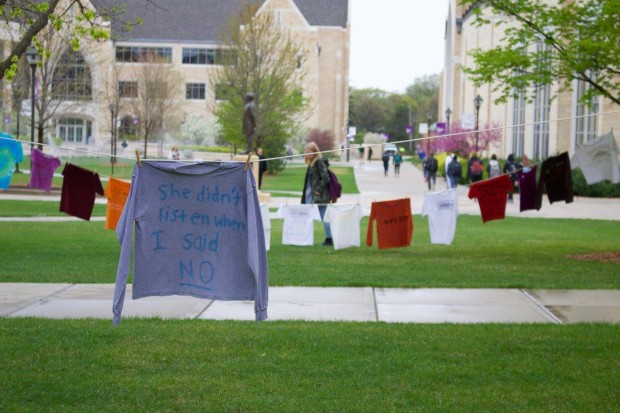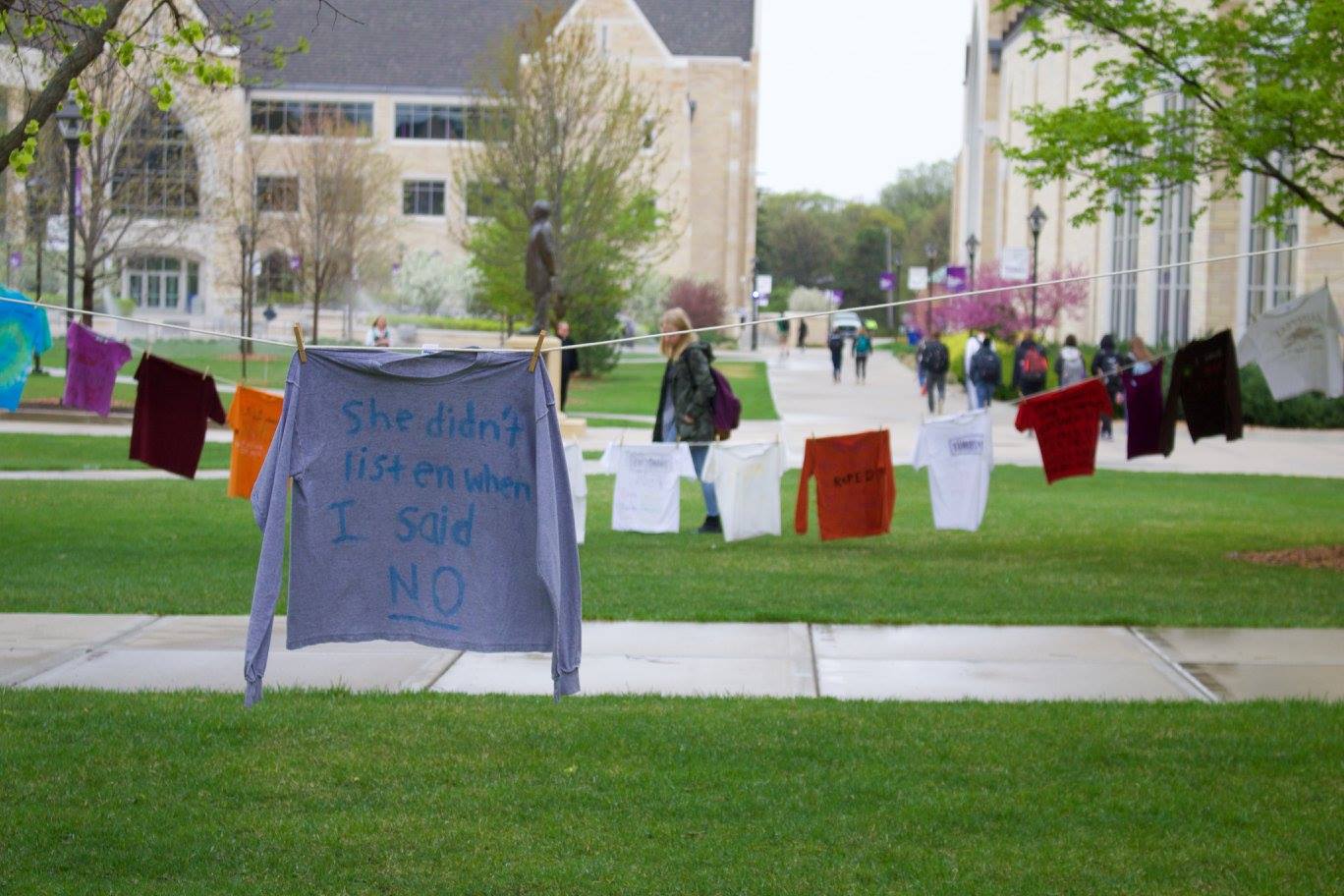St. Thomas administrators say the university has not changed how it handles sexual misconduct on campus following the recent Trump administration cancellation of Obama-era Title IX guidances.
Education Secretary Betsy DeVos in late September rescinded two sets of guidelines created in 2011 and 2014. Because guidelines are recommendations to educational institutions on how to interpret the federal Title IX law, St. Thomas has not yet changed how it operates, according to Title IX Coordinator Danielle Hermanny.

Schools may now choose between a “clear and convincing” standard of evidence and a lower “preponderance of evidence” in sexual assault cases, as long as the standard is the same one used for other campus misconduct cases, according to the new guidelines.
The previous guidance required schools to use the “preponderance of evidence” standard.
“At St. Thomas, there are no required changes right now,” Hermanny said. “We continue to follow our policies and processes, which continue to be in compliance with federal and state law and regulations.”
According to Hermanny, the guidelines could lead to actual policy changes in the future, but as of now, “no changes have been made to the federal law that is Title IX.”
St. Thomas has already followed several aspects of the new guidance. For example, the university offers measures to protect students after an assault is reported, which include filing no-contact orders and changing residences or schedules. The university also holds a consistent standard of evidence among all cases of student misconduct.
DeVos criticized the guidelines for Title IX set by the Obama administration, saying they did not do enough to protect those accused.
“The truth is that the system established by the prior administration has failed too many students,” DeVos said in a September speech about Title IX. “There must be a better way forward… Every student accused of sexual misconduct must know that guilt is not predetermined.”
DeVos said that the new guidance will “ensure that America’s schools employ clear, equitable, just, and fair procedures that inspire trust and confidence.”
St. Thomas senior Whitney Oachs, a sexual assault prevention activist, said the creation of new guidances with a focus on the falsely accused has a symbolic meaning.
“I think it symbolizes the proof that this administration isn’t very interested in combating the hardships of coming out as a victim,” Oachs said.
Emily Erickson, the sexual misconduct prevention program director for St. Thomas, also disagrees with DeVos’ focus on the accused.
“When (DeVos) talks about folks who are falsely accused of sexual assault and folks who experience sexual violence, she talks about them as if those issues happen equally at the same rate. When in fact there is a huge disproportion between them.”
Erickson referenced a study from the National Sexual Violence Resource Center that found between 2 and 10 percent of sexual assault reports are false.
Erickson said the Obama-era Title IX guidelines opened a discussion about sexual assault and incorporated parts of the guidelines into law. Plus, a task force was established to prevent sexual assault. Erickson added that with the new guidance, this momentum seems to be put on pause.
“This (new) guidance focuses so much on the response… so often that’s where our attention goes,” Erickson said. “I would love to see more focus on prevention.”
Oachs also supported more preventative measures. “A lot is focused on justice after an assault happens, versus really trying to change rape cultures on college campuses,” she said.
No matter the stance on Title IX’s new guidances, Oachs says the issue of sexual assault and misconduct affects everyone.
“(Title IX) is often viewed as a women’s issue,” Oachs said. “But I think it’s more of a people’s issue. We all have a hand in this issue. Every one of us has a responsibility in this issue.”
Kailyn Johnson can be reached at john4298@stthomas.edu.

